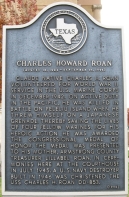With large debts to be paid Arthur Shelby is close to losing it all. Shelby sells two of his slaves to a mean slave owner- Mr. Haley. The slaves names are Uncle Tom and Harry a son of Mrs. Shelby’s maid.
Before selling the slaves Emily Shelby tells Eliza they wont sell Harry. When Eliza and George find out Harry was going to be sold anyway they flee hoping to find a way into Canada. Mr. Haley pursues them, but they evade capture by crossing the frozen Ohio River. Mr. Haley sends a Slave hunter to capture them – Loker. Eliza and her family unite with some Quakers who agree to escort them to Canada.
Haley then takes Tom and forces him to leave his family. and good friend George Shelby (Mr. Shelby’s son). Tom is sold to a Mississippi slave market. There he meets Eva, who is a beautiful young white girl. Eva falls into the river and Tom dives in and saves her life. Her father Augustine St. Clair buys Tom from the traders. Tom then moves to New Orleans with the St. Clair’s, and becomes a Christian.
Eliza and her family were still fleeing from Loker. George shoots Loker in side. They take Loker with them to the next Quaker settlement, so that he may be healed.
Meanwhile, St. Clair discussed slavery with his cousin Ophelia. She hates that slavery is in existence, but is also racist against black people. St. Clair likes black people, but does not mind the idea of slavery, considering he can do nothing about it. St. Clair buys another slave, Topsy, a young black girl who had been abused by her previous owner. Topsy had been arranged by St. Clair to be educated by Ophelia.
Later, Eva dies of a sickness and everyone around her changes. Ophelia begins to love black slaves, Topsy grows to become more comfortable around people and begins to build relationships, and St. Clair was about to set Tom free. Just before Tom is set free, St. Clair attempts to break up a fight, and in the process is murdered. St. Clair’s wife sells Tom to a harsh slave owner, Simon Legree.
Tom meets Emmeline who is Legree’s sex slave. Cassy the old sex slave of Legree tells Tom she was taken from her daughter and had been pregnant with another. She killed the child before birth, because she could not bear to be seperated from another one of her children. Legree extremely dislikes Tom, because he would not whip another slave when askked to do so. Tom was beaten ruthlessly for this.
Loker now a changed man by the help of the Quakers, decides to help Eliza and her family reach Canada. They reach Canada and become free.
Tom encourages Cassy to run away along with Emmeline. Tom refuses to tell Legree where they had gone. Tom is beaten until he is close to death. George Shelby, his original owner’s son, come to buy Tom back, but is too late and Tom dies.
Cassy meets up with Eliza and George, and they find that Eliza is Cassy’s long lost daughter. They set up a village for escaped slaves back in Africa. George Shelby, in honor of Tom, frees all of his slaves. Tom inspired a lot of people to do good, and even convert to Christianity.




